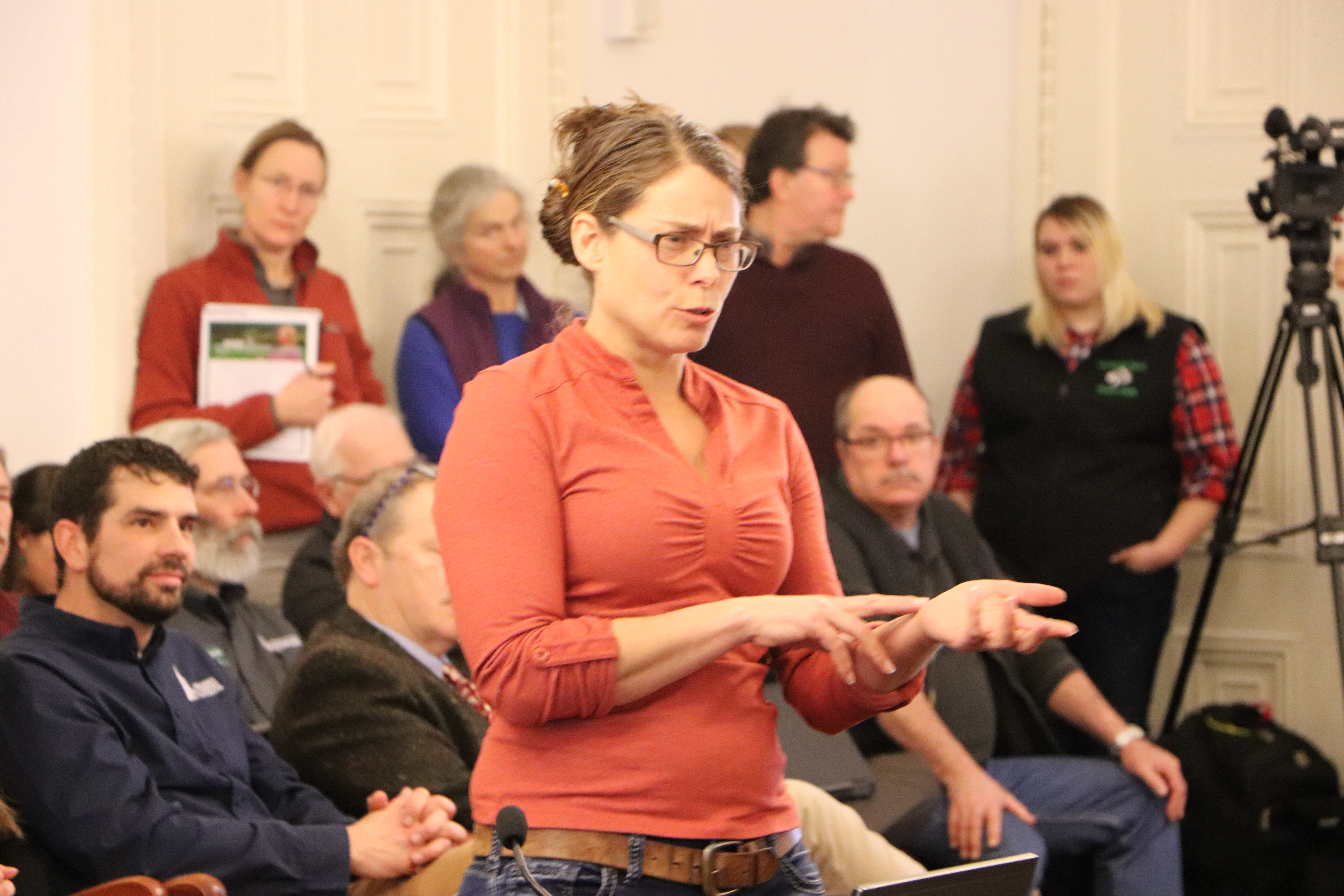
The Vermont farming community spoke to legislators Friday about how the state’s agricultural land is currently managed to protect the environment.
Vermont Agriculture Secretary Anson Tebbetts kicked off the joint committee hearing.
“There is more than a decade of research to review and farmers stand to do more with your encouragement and support.”
 Researchers from UVM Extension dove into the data, presenting scientific evidence that farmers continue to improve Vermont’s land and waterways by adapting new practices.
Researchers from UVM Extension dove into the data, presenting scientific evidence that farmers continue to improve Vermont’s land and waterways by adapting new practices.
In fact, a study presented by Professor Heather Darby from UVM Extension showed Vermont is leading the nation.
“People are noticing, maybe not people in Vermont which is unfortunate, but one study shows Vermont ranks number 1 for conservation practices,” said Darby.
(View data from UVM Extension)
UVM Climate Change Researcher Joshua Faulkner explained how adoption of practices like cover cropping is working to reduce greenhouse gas emissions.
Using national data, Faulkner estimates if all 80,000 acres of Vermont’s land used to grow corn was cover cropped, the carbon sequestration would be equivalent to taking 51,290 cars off the road.
Vermont farmers are making significant progress, but Darby insisted they can do even better.
Darby described how using new technology to assist farmers with feedback on the implementation of new practices is vital to taking the next steps.
And farmers can’t do it alone.
“We’re asking 1.2 percent of the Vermont population to help us out right now, to absorb more water, to protect our landscapes and we’re not event actually paying most of them for the one service that feeds us all,” said Darby.
Vermont farmers spoke about their dedication to the land they live, love and work on.
“Farmers in Vermont are doing good things everywhere. We are willing to work together and with you, to develop the best path forward to protect and improve our state’s soil, water and air,” said Amy Richardson from Richardson Family Farm in Hartland, Vermont.
“We are looking for a way to save our heritage… I want to be able to tell my 1-year-old son Tanner he might have the chance to follow his dad’s, grandfather’s and great-grandfather’s footsteps. To live off and protect the land and gain an appreciation for all the resources it provides,” said Scott Magnan, Scott Magnan’s Custom Service.
As the testimony concluded, directors from Vermont’s watershed alliances formed by farmers outlined a pilot project to hire farmers to produce better ecosystem service across Vermont.
Click here to read their proposal letter to lawmakers.
WATCH: Joint Committee Hearing on Climate Change and Farming
